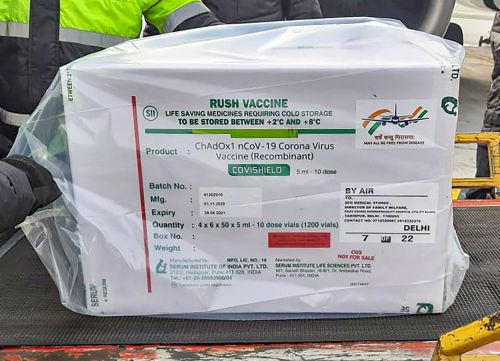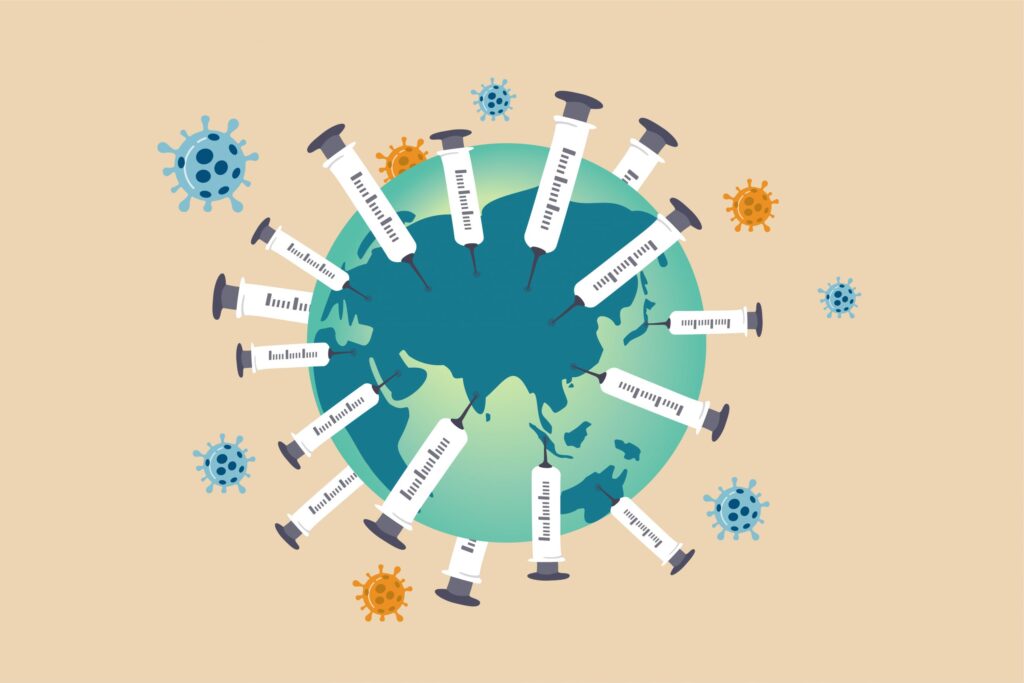On 06 -May-2021, in a surprising move, the Biden administration announced its support for Trade-Related Aspects of Intellectual Property Rights (TRIPS) waiver for COVID-19 vaccines. US support to the wavier, initially proposed by India and South Africa in October 2020, was applauded as a step towards ensuring an affordable and sufficient number of vaccine for developing and least developed countries (LDC).
China accompanied by 62 other countries have shown openness and willingness to the proposed reforms, voices from European Union (EU) have opposed the idea. The EU last Friday submitted a draft of an ‘alternative plan’ to ensure vaccine equity to World Trade Organisation (WTO).
These developments are of utmost importance as the G7 leaders will be meeting for the 47th annual G7 summit as they will be delivering a resolution upon this. In this context, The Voices explains the fundamentals of the ‘wavier plan’.
Why all this exercise? Can we not simply manufacture the vaccines for us?
Research and development of vaccines are expensive. Companies invest millions of dollars in their development and would not allow anyone to start manufacturing vaccines without their permission. Thus, to keep their hardwork safe intellectual property rights comes into the picture.
What exactly is this intellectual property right?
Intellectual property rights are the rights given to persons and organisations over the idea/creations of their knowledge. They usually give the creator an exclusive right over the use of his/her idea/creation for a certain period. This exclusivity is the soul of IPR. These rights include patents, copyrights and related rights, trademarks, industrial designs and geographical identifications.
For example, Coca Cola has a specific formula that keeps its taste and quality the same globally. This formula is a trade secret. Anyone trying to manufacture a drink using their formula without the permission of Coca Cola will lead to legal ramifications as Coca Cola has protected its formula under IPR. Any company that wishes to manufacture a drink using their formula will require the permission of the IPR holding company called licensing. However, they can seek a permit from them by paying the IPR holding company an appropriate amount. However, the holding company can decide whether they want to give the licencing to another company or not and are not bound to grant a license.
It sounds like it may result in unfair trade practices and IPR holders may bluntly deny licenses even if the product is for a larger good.

No rights are absolute. The issues related to IPR are looked at by the Trade-Related Aspects of Intellectual Property Rights (TRIPS) agreement at WTO. It is a multilateral agreement between member nations. It frames the intellectual property system in terms of innovation, technology transfer and public welfare. There is the provision of waiver in Article IX of the WTO agreement in exceptional conditions.
So how does it all happen?
A waiver is an extreme step and may produce counterproductive results in medium to long terms for a country. MNCs may stop further investments are a disincentive for R&D.
Compulsory Licensing is flexibility available in the TRIPS agreement. It is granted for a certain period to avoid counterproductive results of waiver.
Licensing is done voluntarily by the patent holder whereas, compulsory licensing is a forced measure usually for the greater good. Compulsory Licensing is when a Government allows someone else to produce a patented product or process without the consent of the IPR holder.
Compulsory licensing involves payment of adequate remuneration to the IPR holder. Also, domestic laws should be present to regulate the Compulsory licenses in the country.
What benefits could be reaped by compulsory licensing?

Before the Doha Declaration on TRIPS and Public Health, compulsory licenses allowed production only for domestic use and prohibited exports, however, the Doha Declaration allowed countries which are unable to manufacture pharmaceutical for their domestic use may import cheaper copies under compulsory licensing. So along with availability, compulsory licensing tackles the issue of costs. It is however granted only for a fixed period.
What are the challenges in granting compulsory licenses in India?
- It is too early to grant compulsory licenses of privately developed vaccines without due deliberations. Govt of India already has COVAXIN developed by Bharat Biotech in partnership with ICMR ( funded by Govt of India)
- Compulsory licenses may prove to irk countries and blocs that have already been very skeptical about our waiver proposal.
- India is ramping up its production capacity. Soon Sputnik V will also be available in Indian markets. Hence, it will be hard to justify compulsory licensing.
Which of the countries supported our proposal?
- The USA and other 120 countries that are LDC or developing have supported the Indian proposal in principle.
- The USA earlier cited IPR for its reservations on the joint proposal of India and South Africa.
- WHO also has supported the joint initiative, citing it would do away with inequalities in vaccine accessibility.
- UK, European Union and Canada are doubtful over the utility of the proposal and are of opinion that voluntary licensing should be promoted. They also have apprehensions over the quality of vaccines produced in an IPR waived ecosystem. However, they are open to deliberations.
Will compulsory licensing do away with all the issues regarding the availability and affordability of vaccines?

No, along with the availability of vaccines, India needs to address various other bottlenecks in providing vaccines to the vaccination centres such as logistics.
Differential pricing and quotas for the centre, state and market will affect the availability of vaccines and their prices to end-user.
Sputnik and Pfizer’s COVID-19 vaccine will be available to Indians shortly along with ramped up production of Covishield and Covaxin. Some experts say that at the current pace, it is evident that India will need at least another two years to vaccinate its targeted population. However, the Indian government is confident of vaccinating the adult population by the end of the year.
Meanwhile, TRIPS waiver will be negotiated and experts point out that if consensus is built, India will have a chance to meet its ambitious deadline.
Edited by: Mohammed Sajid


2 Comments
Beautifully explained by Himanshu. Simple yet exhaustive.
Amazing read Himanshu. Looking forward to more such reads from you. The issue is explained in greater detail with ease and is power packed with information.